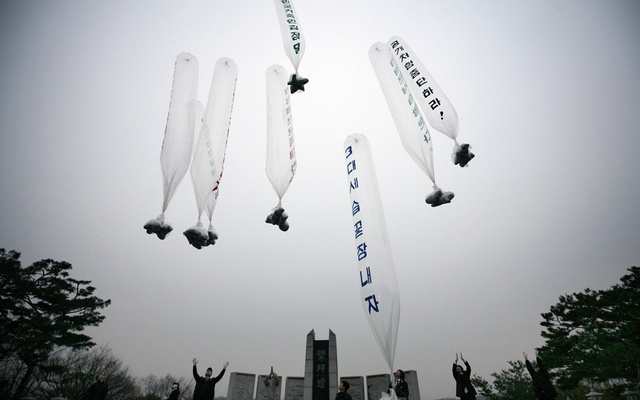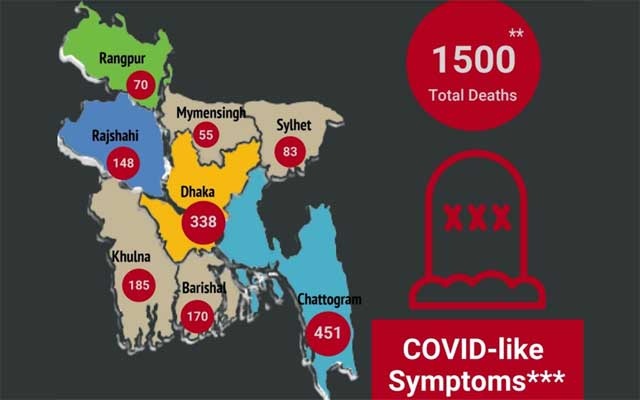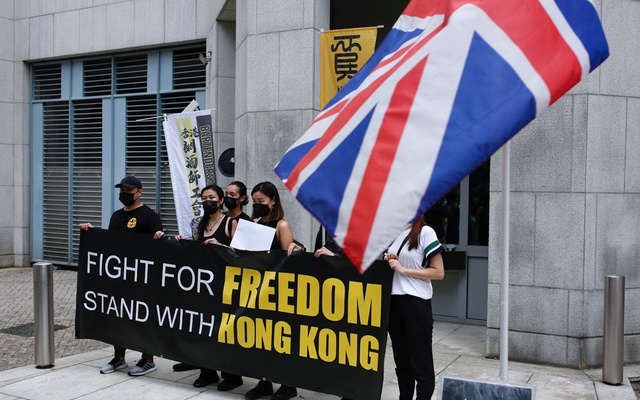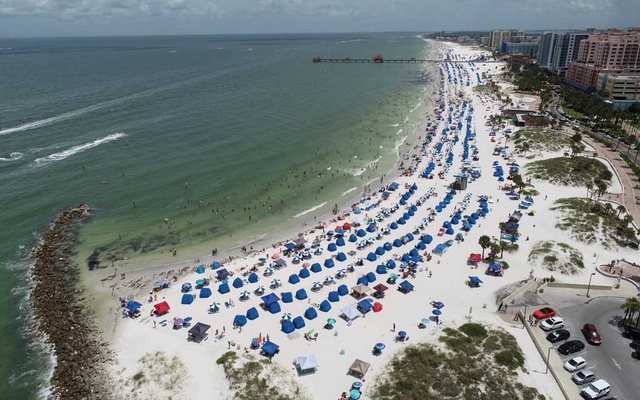
22 Sending North Korean workers to China. Bringing more tourists from there. Smuggling banned cargo, like coal or oil, across the border at night or between ships on high seas.
But there was one thing Kim did not foresee: the coronavirus.
Barely three weeks after Kim unveiled his New Year’s resolution, North Korea shut down its border with China to protect itself against the emerging outbreak in the city of Wuhan. It was no ordinary border closure.
China accounted for 95% of the North’s trade. Consumer goods, raw materials, fuel and machine parts smuggled into the North across their 870-mile border kept North Korean markets and factories sputtering along, despite United Nations sanctions designed to curb the Kim regime’s nuclear ambitions.
With the border sealed, the North’s official exports to China, already hobbled by the sanctions, have crashed even further. In March, they were worth just $610,000, according to Chinese customs data — down 96% from a year earlier. The North’s newly opened ski and spa resorts are empty of Chinese tourists, and its smuggling ships sit idle in their ports.
The virus has isolated the North Korean economy as no sanctions could. It has devastated the regime’s ability to bring in money through legal and illegal trade, leaving it scrambling to protect the country’s diminishing foreign currency reserves.
“To North Korea, COVID-19 is a black swan. None of its policymakers saw it coming,” said Go Myong-Hyun, an analyst at the Asan Institute for Policy Studies in Seoul, South Korea.
North Korea claims it has had no coronavirus cases. But it was one of the first countries to shut its border, aware that its woefully underequipped public health system made it particularly vulnerable to mass infection.
The pandemic could hardly have come at a worse time for Kim, whose attempts to win sanctions relief in talks with President Donald Trump have been fruitless. North Korea’s recent acts of hostility toward South Korea, including the destruction of the inter-Korean liaison office in the North, have been seen in part as acts of economic desperation.
“If you peel North Korea’s problem like an onion, at the core is its economy, and its economic trouble comes down to whether it can lift sanctions,” said Kim Yong-hyun, a professor of North Korean studies at Dongguk University in Seoul.
The North Korean economy has languished for decades, hobbled by communist mismanagement, a famine in the late 1990s and the gradually tougher sanctions imposed by the UN since 2006, when the North carried out its first nuclear test.
Kim has tried to boost the economy with domestic reforms aimed at creating a “socialist system of responsible business operation.” Factories and collective farms were given more incentives to increase productivity, including the right to keep surpluses.
Kim also ramped up exports of coal, iron ore, textiles and seafood to China, achieving economic growth of 3.9% in 2016, the highest since the late 1990s, according to South Korea’s central bank.
But the North also rapidly expanded its weapons programs, testing three intercontinental ballistic missiles in 2017 as well as what it said was a hydrogen bomb. In response, the UN Security Council tightened the noose around the North’s economy by banning all of its major exports.
The economy shrank by 3.5% in 2017. It contracted by 4.1% the following year, with its exports to China plummeting 86%.
By February 2019, when Kim and Trump held their second summit, in Vietnam, the North Korean leader was desperate for relief. The Security Council had required China, Russia and other countries to expel all North Korean workers by December, which threatened to deprive the North of another key source of income, estimated at $500 million to $1 billion a year.
But Kim’s hopes of easing the sanctions ended when the Vietnam talks collapsed.
In his grim New Year’s message, Kim seemed determined to slog through the sanctions, asking North Koreans to prepare to “tighten our belts” again. He also vowed to boost his nuclear weapons program further, hoping that a more advanced nuclear arsenal would give him more leverage with Trump or his successor. He threatened to end his moratorium on nuclear and long-range missile tests, warning that the world would soon witness his “new strategic weapon.”





